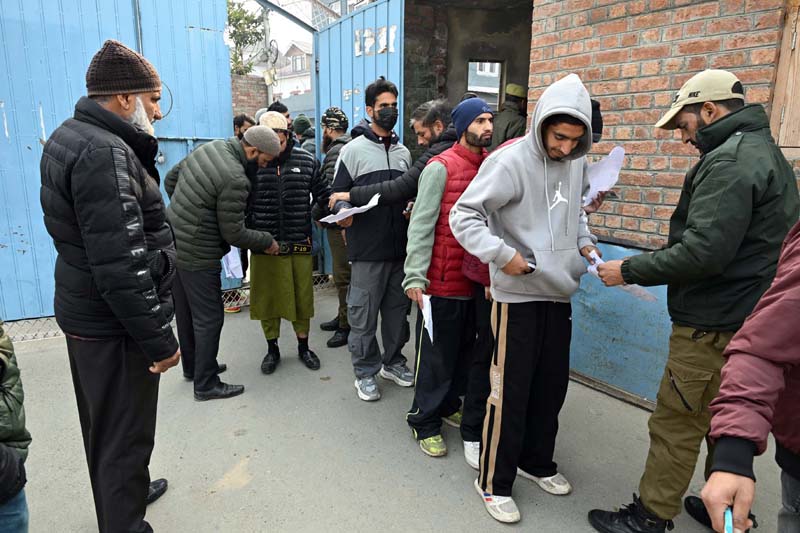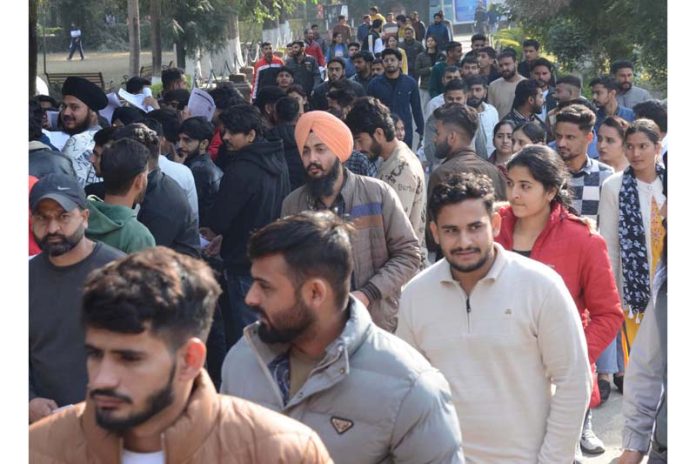Highest 46,378 aspirants mark presence in Jammu district
Bivek Mathur
JAMMU, Dec 1: With a strong deployment of staff and security personnel both inside and outside the examination centres, a total of 2.29 lakh (87%) candidates appeared for the Jammu and Kashmir Police constable examination peacefully across the Union Territory today.
Follow the Daily Excelsior channel on WhatsApp
There were no complaints of any unfair practices at the examination centres, as adequate arrangements had been made to ensure a hassle-free and incident-free process.
“A total of 2,62,863 candidates had registered for the Police Constable (Executive, Armed, SDRF posts) examination. Of these, approximately 2.29 lakh (87%) marked their attendance in different examination centres across the region today,” said Indu Kanwal Chib, Chairperson of Jammu and Kashmir Services Selection Recruitment Board (JKSSRB)-the agency conducting the examination.
According to her, the examination was held across 856 centres in the Union Territory, with the highest number of centres (458) located in the Jammu division, and the remaining 398 centres in the Kashmir division.

“While 1,29,468 candidates appeared in the examination in Jammu division, 1,00,276 candidates sat in the examination in Kashmir division,” Chib stated.
The JKSSRB chairperson further noted that the highest attendance was recorded in Jammu district, where 46,378 candidates appeared out of the 54,296 registered. In Srinagar district, the attendance stood at 18,493.
Meanwhile, 1,67,609 candidates are scheduled to take the examination for the Constable (Telecommunication Posts) on December 8, 2024, and 1,28,633 candidates for Constable (Photography positions) on December 22, 2024. In total, 5.59 lakh candidates are set to appear for 4,002 constable positions in the Jammu and Kashmir Police.
Indu Kanwal Chib acknowledged that conducting an examination for such a large number of candidates was challenging but expressed satisfaction with the smooth conduct of the first phase, thanks to the cooperation of District Development Commissioners (DDCs), the police, and other security forces that ensured that no unfair practices occurred either inside or outside the examination centres.
“Conducting this examination peacefully was akin to the conduct of elections in this region, but we are happy to have achieved this feat with no complaints of unfair practices reported from any centre,” Chib added.
It is also worth noting that, for the first time, male and female gazetted officers were deployed at each centre as “frisking supervisors,” and videography was carried out during the exams to ensure transparency and prevent any untoward incidents.


